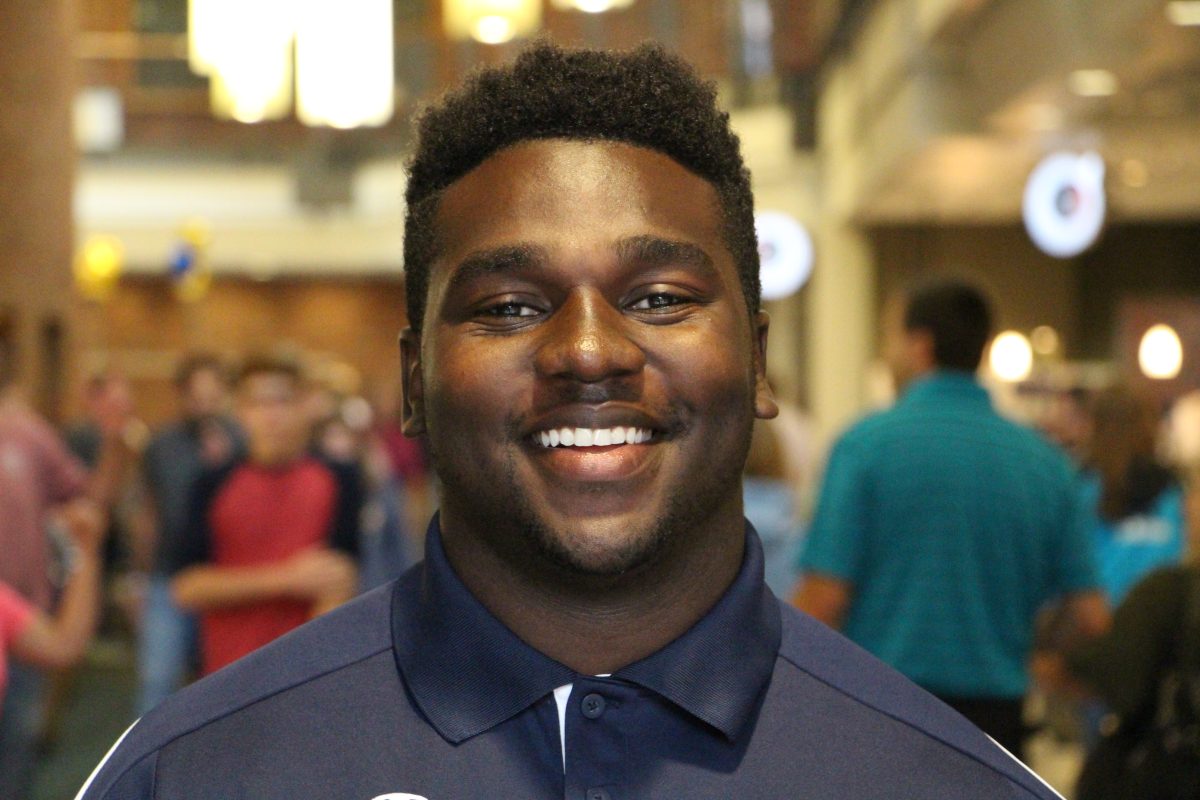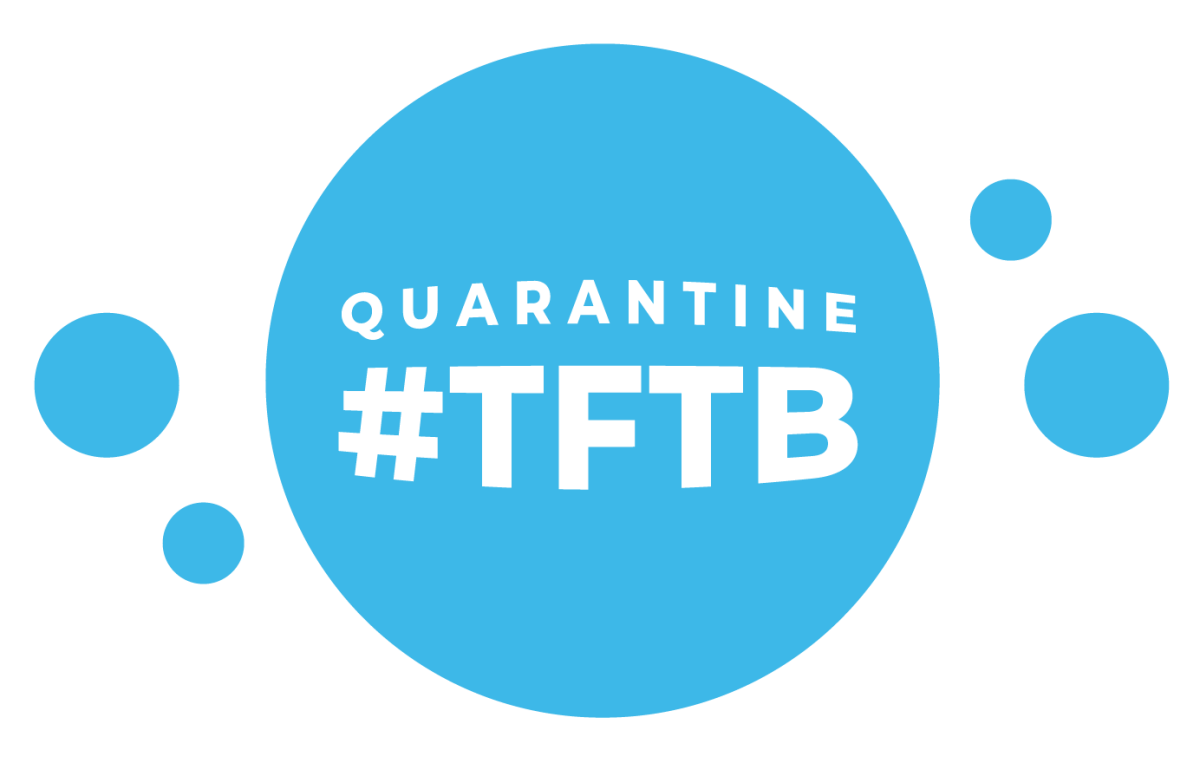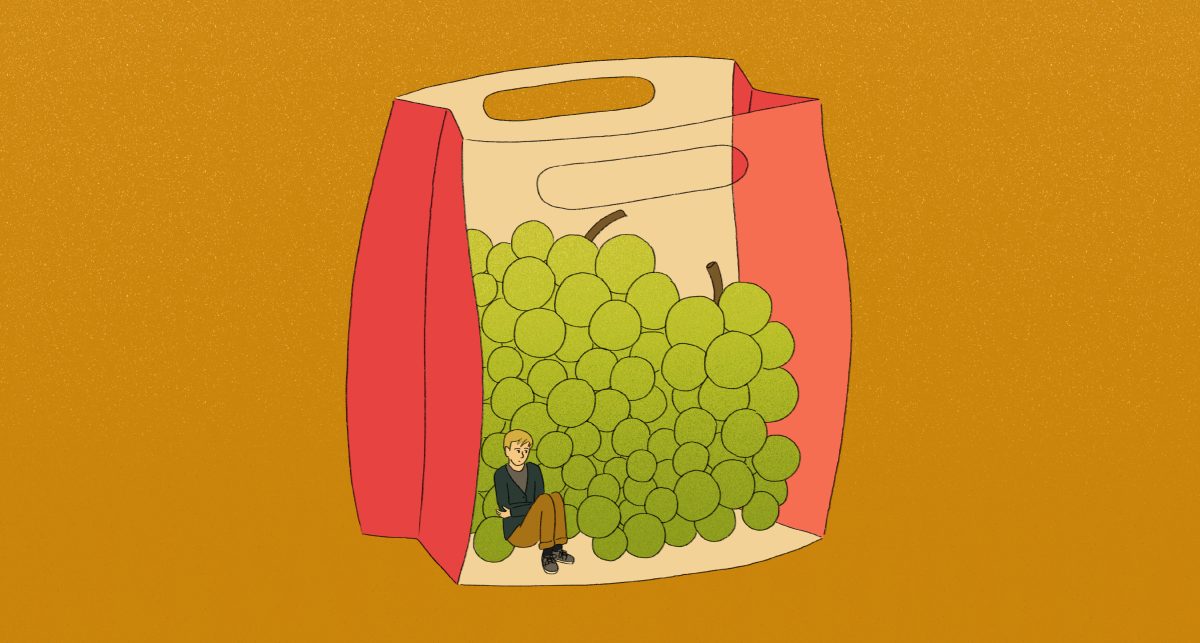The following is an opinion piece and does not necessarily reflect the views of The Clarion, its staff or the institution. If you would like to submit a response or an opinion piece of your own, please contact Editor in Chief Abby Petersen at [email protected].
Athletes hold an important platform on current events and social issues that affect all.
By Godfrey Mpetey
Since my childhood, I idolized athletes for their ruthless aggression. Ray Lewis, former linebacker for the Baltimore Ravens, inspired me to wear number 52 for football. His ferocious leadership and personal characteristics drove me to become a better athlete. While I applaud their passion, my newfound admiration of athletes stems from what happens off the field.
On Aug. 25, Hurricane Harvey swept through the state of Texas, stretching throughout Louisiana and bordering areas. The damage left hundreds of thousands into evacuation, leaving families banished from their homes. Damages are reported to cost more than $180 billion. ABC News reports the elevating floodwater resulted in at least 60 deaths alone.
J.J. Watt, an all-pro defensive end for the Houston Texans, partnered with YouCaring to fundraise relief aid for victims of Hurricane Harvey. With the help of fellow athletes and celebrities, Watt fundraised more than $20 million. The aid provided 10 semi-trucks filled with necessities such as bottled water and diapers as countless volunteers hurled packages to people in need.
Amid a turbulent social and political climate, athletes are fulfilling their duties of social responsibility. Athletics create platforms for their participants. Three-time NBA Champion LeBron James spoke about racism last spring when his home in Los Angeles was vandalized with racial slurs.
“Being black in America is tough.” James said about the incident. “We got a long way to go for us as a society and for us as African Americans until we feel equal in America.”
Athletes are believed to remove themselves from the hard-hitting questions. They are told to take the Charles Barkley route and profess “I’m not a role model.” My first experience with athletic isolation happened last fall during homecoming week. While the Royals’ football team prepared to face St. John’s, my heart laid elsewhere. A week filled with school spirit was coated white, marking Blue Lives Matter over a symbol of solidarity.
When I addressed the team about the Kresge courtyard rock incident in September of last year, voices cried to forget and move on. We have a bigger things to think about. That moment presented me with two perspectives. First, athletes have created an isolation tool, meaning their involvement in athletics removes their voice on external conflicts. Second, silence became inexcusable when those conflicts were delivered to our front door. This was not an incident at the University of Minnesota or Alabama. This was our so-called “sanctuary.” Continuing to silence myself from social issues is remiss.
Colin Kaepernick, former San Francisco 49ers’ quarterback, finds his career in limbo for kneeling down during the National Anthem, fighting against “a country that oppresses black people and people of color.” Seattle Seahawks star Michael Bennett released a statement regarding an incident after the Mayweather-McGregor fight when Las Vegas police officer pressed a gun to his head and handcuffed him, only to later release him after identifying the All-Pro defensive end.
“This fact is unequivocally, without question why before every game, I sit during the national anthem” Bennett said regarding the Aug. 26 incident. “Because equality doesn’t live in this country and no matter how much money you make, what job title you have, or how much you give, when you are seen as a “Nigger,” you will be treated that way.”
I may be an athlete, however, once I remove the pads and jersey, I am an individual with a platform to enlighten and liberate human beings.
Who are we not to let our light shine? As athletes, it’s important to utilize our platform to lift the voices who go unheard. Stats, scores, points and tackles are crucial, but who you are and what you do for others is important for our eternity.

![Nelson Hall Resident Director Kendall Engelke Davis looks over to see what Resident Assistant Chloe Smith paints. For her weekly 8 p.m. staff development meeting in Nelson Shack April 16, Engelke Davis held a watercolor event to relieve stress. “It’s a unique opportunity to get to really invest and be in [RAs’] lives,” Engelke Davis said, “which I consider such a privilege.”](http://thebuclarion.com/wp-content/uploads/2024/05/041624_KendallEngelkeDavis_Holland_05-1200x800.jpg)


















